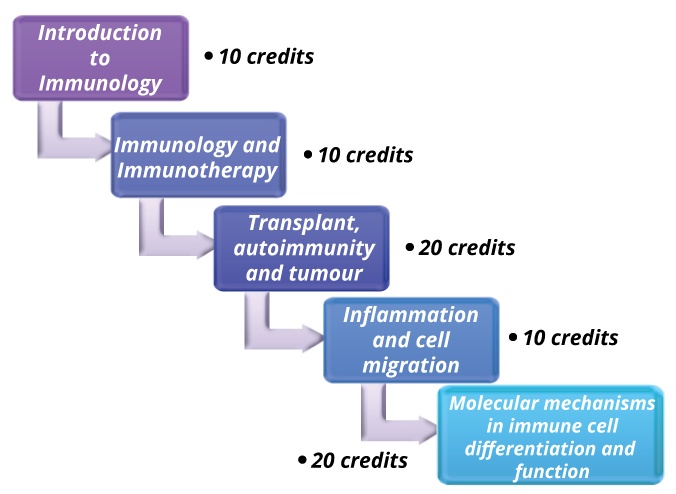Immunology
Immunology is the study of the immune system of human being. It plays a vital role in fighting infection and cancer in the body. The course covers various topics include the study of cells and tissues immune system, basic principles of immunology, structures and functions immunoglobins, lymphocyte development, structure & functions of antigen receptors cells and tissues of the immune systems, etc.
After completion of the Immunology courses, you would learn the importance of disease defense, gene rearrangement, and development in B cells, the difference between innate and adaptive immunity and antibody structure & function. After graduation, any candidates can progress with masters and PhDs those interested in doing advance research
The content of the program is broadly divided into two components: the taught modules and the independent research project (dissertation).
Masters coursework explains the taught modules and credits in the pictorial diagram

Table.1 outlines the Ph.D. in Immunology include:
REQUIRED COURSES (10 CREDITS) |
RECOMMENDED COURSES (4 CREDITS) |
ELECTIVES (12 CREDITS) |
|
|
|
|
After completing the examination, it is time to consult chosen authorities to get approved research proposal depends on upon research areas, dissertation & thesis submission. This expertise who are having Decadal experience having the highest academic records from popular universities from various global nations like UK, USA and more in writing the dissertation for a diverse range of students. For any Immunology writing needs, the experts will ensure to get support from professionals. It strongly stated that dissertation, thesis, and assignment writing as significant to get score 85% in Ph.D. and 50% in master degree as well as complete your program.

